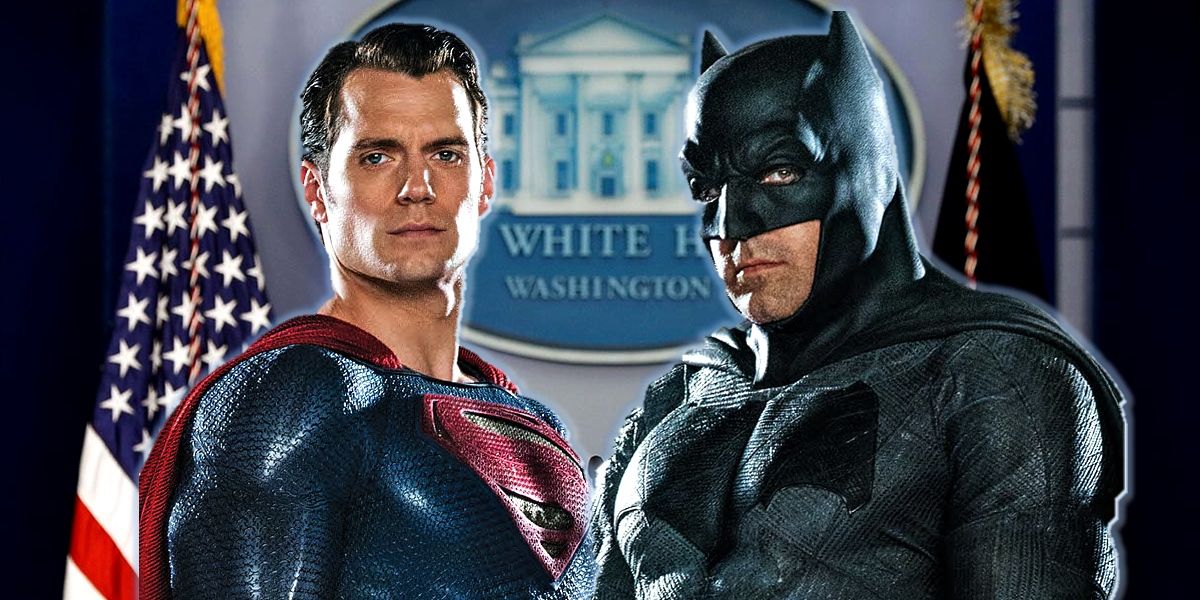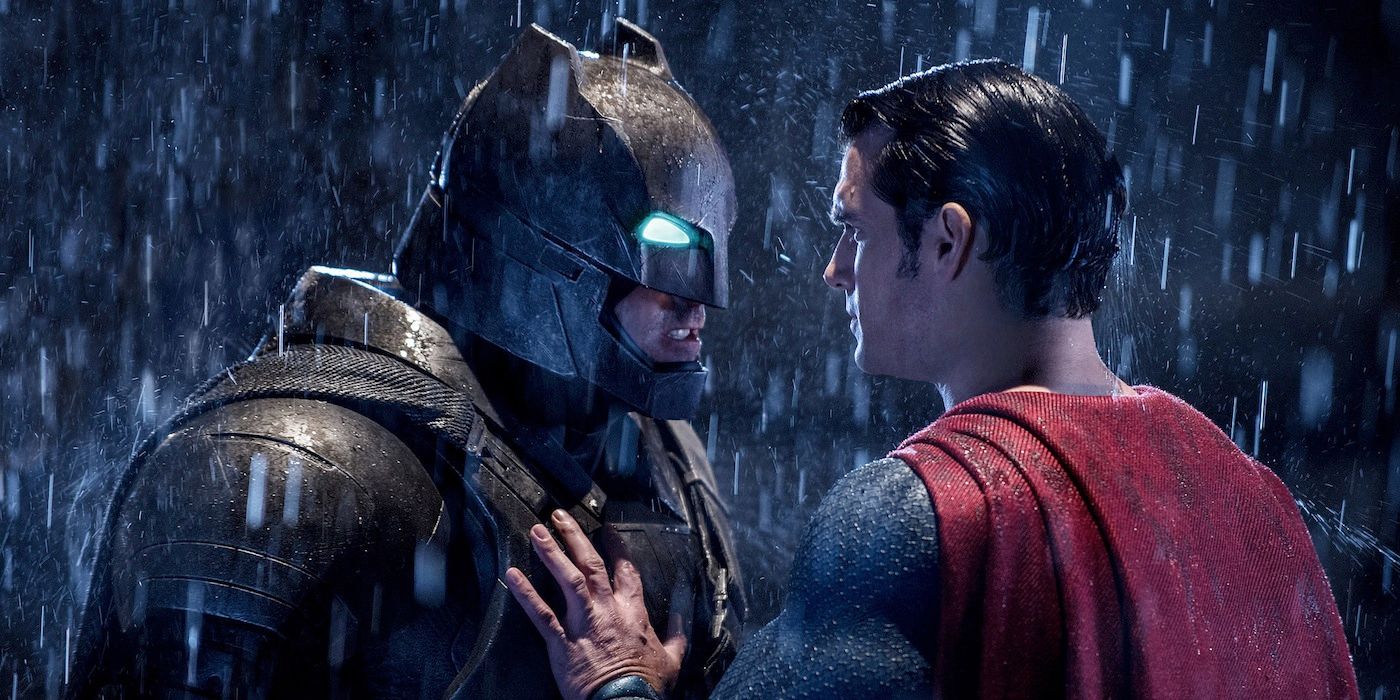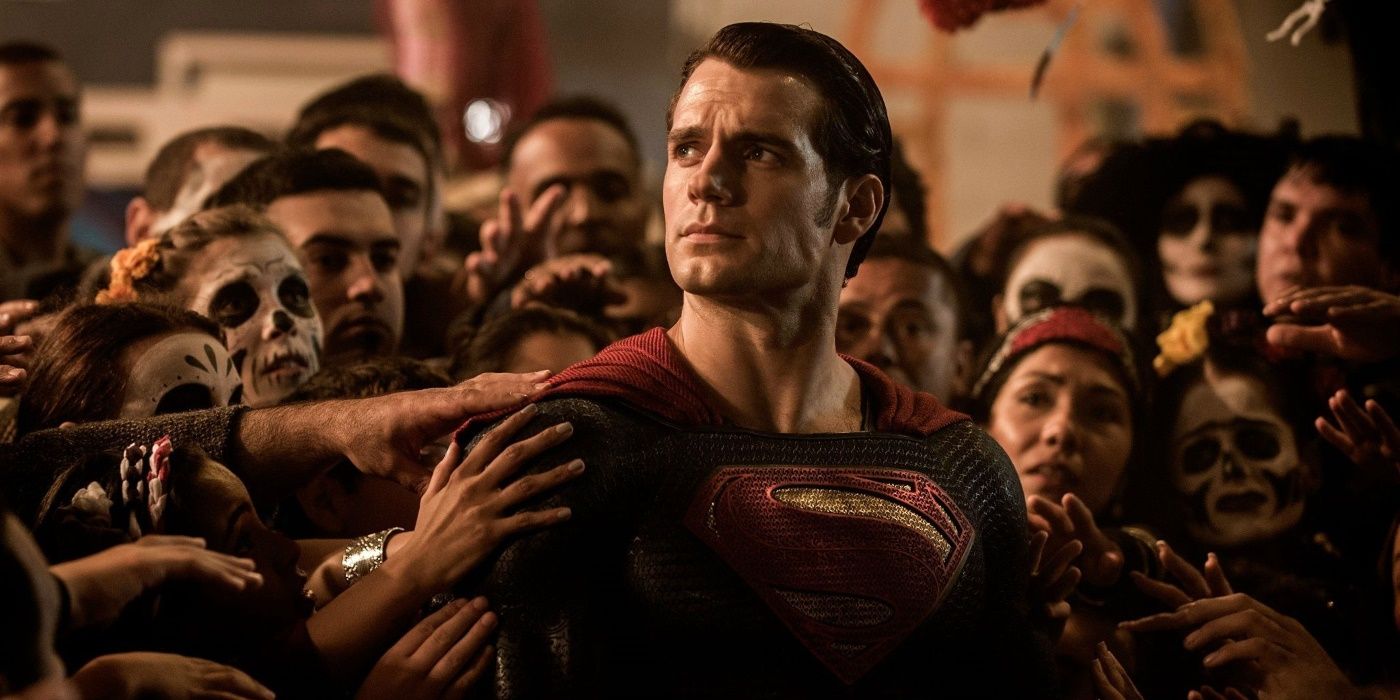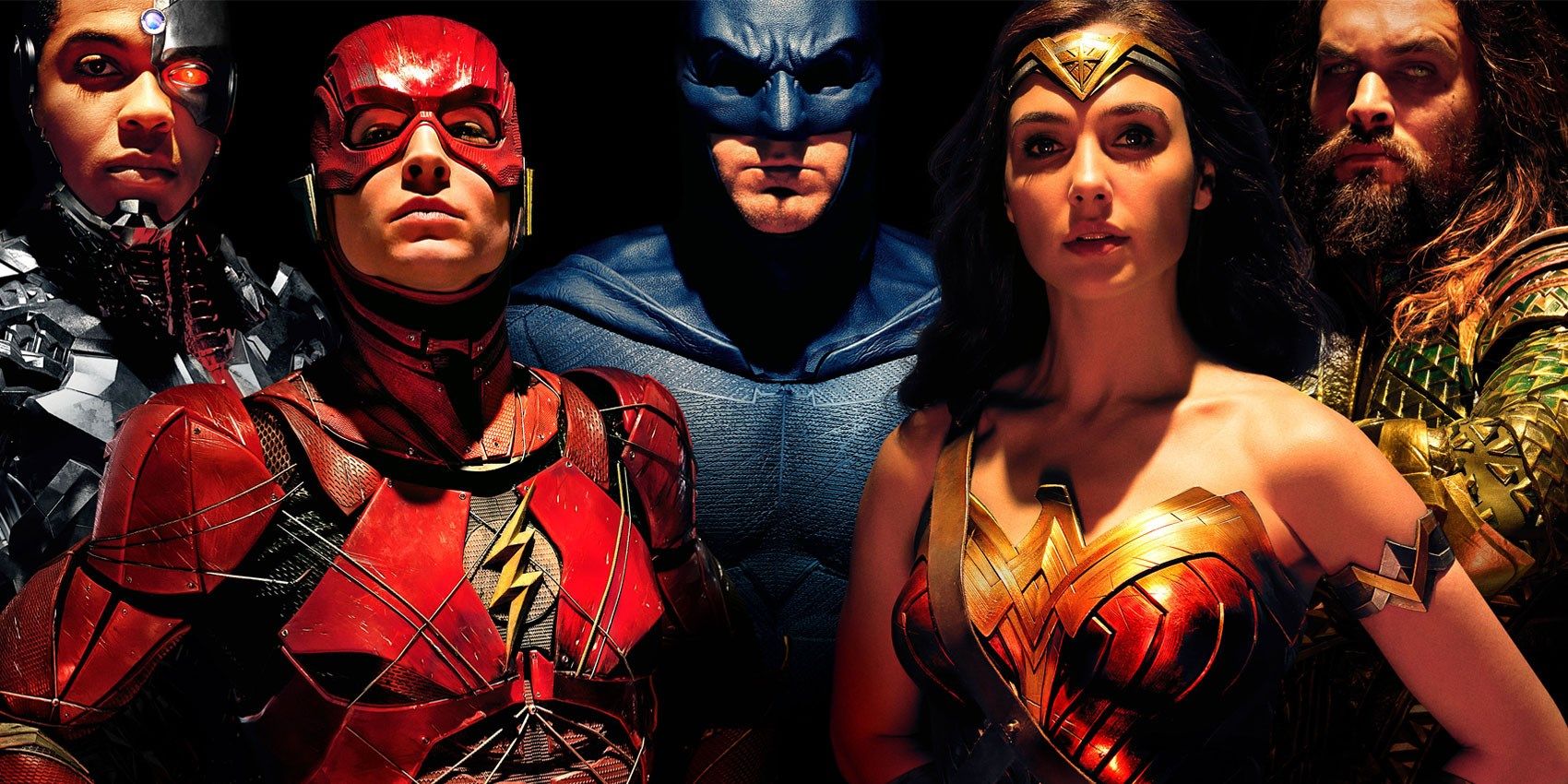If critics and comic book fans felt Batman V Superman was too depressing, bleak, or devoid of joy and tolerance... then the year and a half since its release must be downright unbearable. The criticisms leveled against Zack Snyder's even darker vision of the DCEU, and the way it would react to superheroes were fair, and unsurprising. Fans of Superman like their hero to embody optimism. Fans of Batman expect an authority figure who both embraces his human urges, and rises above them as a nearly infallible crusader. And fans of Wonder Woman still just want to see her on screen.
In all seriousness, the complaints that Americans wouldn't be so cruel and untrusting to Superman, and that someone as smart as Batman could never sink into suspicion has gotten us thinking. Well, that, and the sixteen months since the film released that helped DC out by demonstrating those exact same ideas on the actual world stage. We don't seek to make light of the real upheaval and social struggles in the United States, but it's become clear that BvS's biggest problem may not have been its tone, but its release date.
We must ask: did Batman V Superman release a year too early for critics and America at large? The story may pit Batman and Superman as enemies, standing at opposite ends of the moral, criminal, and personality scales. But their differences only make it more meaningful when they're set aside entirely, to start ensuring that the future is one they can both safeguard. In case you missed our investigations into the parallels between Snyder's Superman and Batman and forces for good and evil in our world, find them both here:
The good news? The case Snyder and DC heroes make for the pursuit of peace is so simple, even an idiot could do it. But the first step may be the hardest. Grudges, prejudice, and hate must be set aside - so that the ones responsible for stoking those fires of division can be found, and addressed.
The Answer: Stop Fighting, Start Talking
The fact that Bruce Wayne can recognize his failure, his weakness, and his surrender to the "powerlessness that turns good men cruel" is a message of hope, and frankly, uncommon optimism. At its heart, it's espousing the belief that people who exercise hate, anger, prejudice, and radical philosophies are not inherently evil - they're simply misled. These are human urges, and human tendencies, and therefore have human solutions. For Bruce Wayne it's the realization - he has dehumanized his enemy to a point far beyond his own moral boundaries - that pulls him back from the point of no return. He isn't sacrificing his principles for the greater good: he's murdering someone as innocent as he had once been, quite literally becoming the thing he swore to oppose.
If Superman represents the misunderstood, ostracized immigrant on one side, and Batman represents the extremist who has sacrificed ideals for security on the other, the solution lies squarely between them. It's a solution in the form of Senator Finch's governmental hearings, described in the film as an attempt not to brand Superman as 'right' or 'wrong,' but start a conversation with Superman, and thereby come to some kind of understanding about his future role. In other words, as Finch believes, exercise the true nature of democracy.
Conversations are happening, as is shown early on in BvS, with Superman observing the debates on television. Delivered in a montage of news footage, contradictory stances are offered (as they should be) without descending into outright prejudice. But as experts weigh in on Superman (whether this strange immigrant is to be revered as an ideal to strive towards, or a harmful figure serving a sinister, ulterior motive) the actual truth of his existence and presence on Earth is arrived at by Vikram Gandhi. Put simply, Superman is neither an angel or a devil: he's "just a guy trying to do the right thing." Even if he's not a human, he's still just a person.
It's a moment of hope in the story, showing a true understanding of Superman is clearly possible if his gesture of trust and faith is returned; if humans, and specifically Americans stop projecting their politics, fears, and hopes onto him. When Superman accepts that being a part of the American and human community means engaging in that conversation and arrives at the Capitol, the true villain - not to mention the real political thesis of the movie - is revealed. It is an opportunity for, in the words of Senator Finch, "truth" to have its time. As audiences know, that's an opportunity Lex Luthor sabotages along with any chance for Superman to speak for himself. It's a guarantee that this outsider will be cast as the villain, since manipulating paranoia, fear, and hatred of even heroic outsiders serves Lex Luthor's purposes and personal ambitions.
To be clear: the antagonist of the movie is fear and hatred. The villains of the movie is Lex Luthor. And his greatest rival isn't Superman or Batman... it's hope and truth, specifically: the ability of people, any and all people, to resist the urge of mistrust and terror, and allow western democracy to function as intended. That's as '2017' as a villain can get, which means that recognizing, examining, appreciating, and debating the conclusion of the film will never be more important than it is now.
Even when people fail and the manipulators succeed, the film argues, it's not too late to find common ground - provided both sides can see the forces that have made them enemies in the first place. Once Batman and Superman relate on the most basic of levels, humanizing the "other," Lex Luthor's stoking of hatred and prejudice becomes instantly powerless. His months, if not years of planning are foiled by friendship, and love. His promotion of all the things that divide them are crushed by recognition of the fact that more unites them.
By then it's too late for all to survive untouched, but it isn't simple guilt, or regret that's shown to motivate Bruce Wayne following Superman's death. Instead, it's acknowledgment that he failed his own moral compass: he should have known better. Now that he sees the damage his prejudice has inflicted, it drives him to learn from that mistake - and never make the same mistake again. And rather than seeing Lex imprisoned as permission to let his guard down, Bruce sets out to unite the Justice League preemptively. People need an ideal to strive towards, and need to trust that those tasked with defending them are up for the responsibility. And in his final exchange with Diana, the film's message is shown to be of particular resonance with the world today.
People will fear. People will hate. People will fall. But it doesn't make them evil. And when those figures and forces determined to keep us divided and opposed are recognized and removed from the equation, there's hope for conversation. People can rebuild what was lost. And that may be all that's needed to move forward in a more promising direction. Because no matter where we come from - be it Gotham City, or Krypton - there's more that unites us than divides us (even if it's just our mother's name).
-
Hopefully, that message can finally be embraced and appreciated, since we're all living in the world the DCEU showed us was coming.




